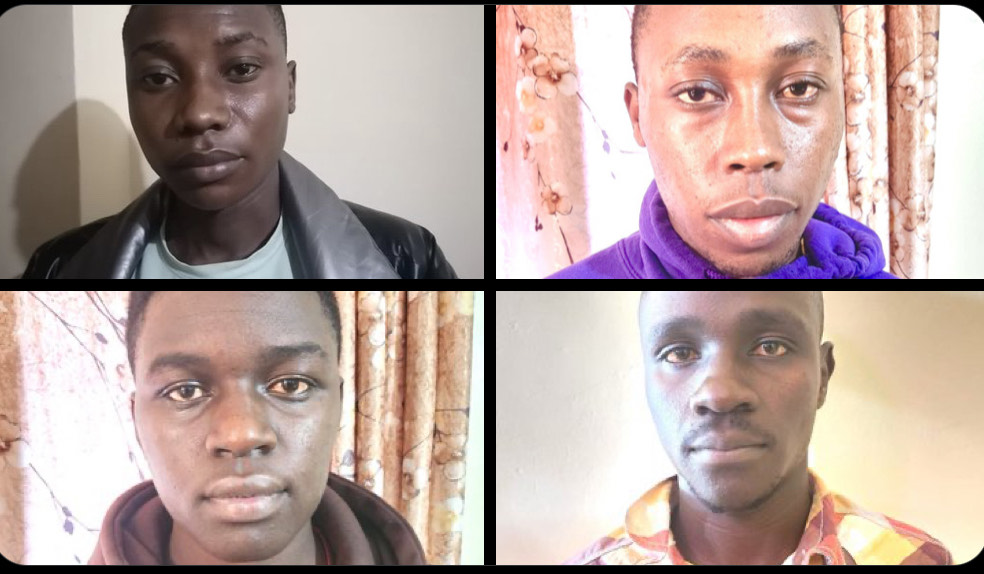Detectives have unearthed a major fraud syndicate in which Safaricom lost Sh500 million to scammers who targetted the Fuliza mobile loan facility.
Fuliza is a mobile overdraft service by Safaricom where customers can complete their MPESA transactions even when they do not have enough funds in their M-PESA account.
The suspects were arrested on Wednesday evening by detectives from the Directorate of Criminal Investigations, DCI.
“Detectives have uncovered a high-level fraud syndicate where scammers have obtained close to Sh500 million through a popular mobile phone platform supported by mobile communication service provider, Safaricom,” the DCI tweeted late Wednesday.
It released photos of the four suspects under investigation for the syndicate.
They are all based in Nakuru and Trans Nzoia counties.
“The company lost the money in a well-coordinated scheme by eight young men based in Nakuru and Trans-Nzoia counties,” it said.
The DCI said MPESA user SIM cards, 6 laptops over 40 mobile phones, 7 routers, assorted Safaricom lines, over 1000 Safaricom subscribers’ registration forms, over 200 ATM cards from all major banks, car agreements among other exhibits were seized from them.
The telecommunications company was yet to comment on the matter by the time this article was published. By Moses Muoki, Capital News






